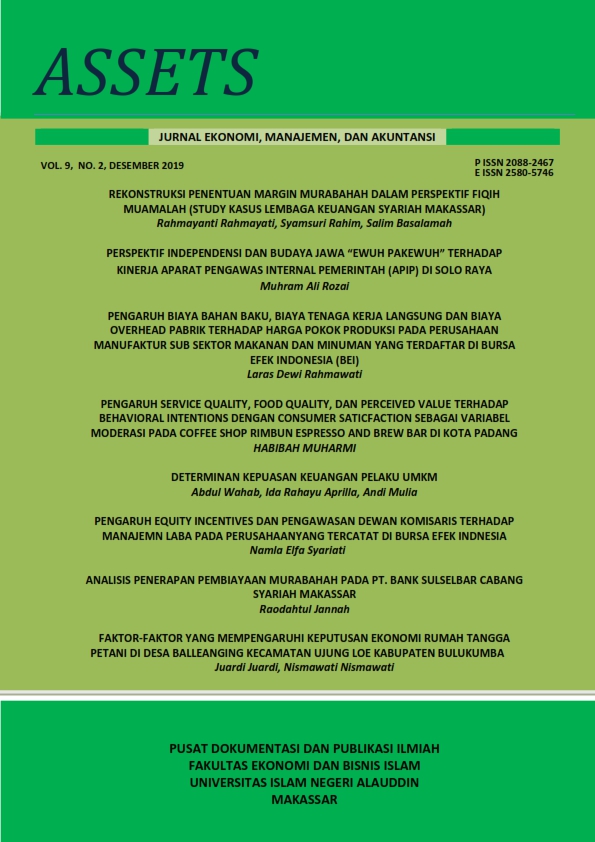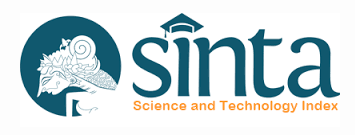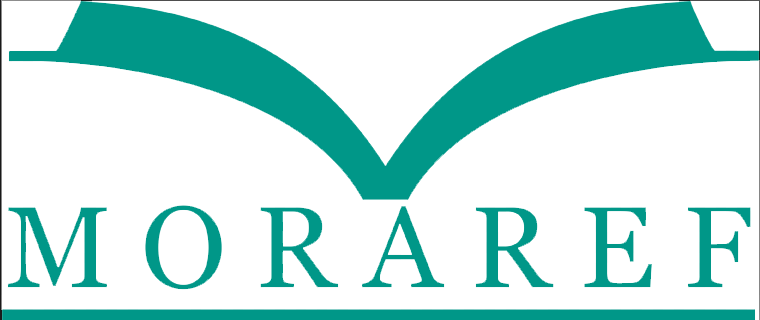DETERMINAN KEPUASAN KEUANGAN PELAKU UMKM
Abstract
The existence of Micro, Small, and Medium Enterprises, or commonly abbreviated as MSMEs, is expected to contribute quite well to efforts to tackle economic problems that are often faced, such as high levels of poverty, large numbers of unemployed, income distribution inequality. The role of MSMEs in Indonesia must be able to reduce the level of unemployment, which is increasing from year to year, alleviating poverty by helping poor people and income distribution that can improve the lives of people who have limitations, especially in financial matters. This study aims to determine the effect of gender (gender), income, and financial knowledge on financial satisfaction. The results of this study indicate that the variables of gender (gender), revenue, and financial knowledge simultaneously influence financial satisfaction. If partially tested, the gender variable statistically insignificant affects financial satisfaction. While the income and financial knowledge variables somewhat influence financial satisfaction.
Keberadaan Usaha Mikro Kecil dan Menengah atau biasa disingkat dengan UMKM, diharapkan dapat memberikan konstribusi yang cukup baik terhadap upaya penanggulangan masalah-masalah ekonomi yang sering dihadapi seperti tingginya tingkat kemiskinan, besarnya jumlah pengangguran, ketimpangan distribusi pendapatan. Peranan UMKM di Indonesia harus dapat mengurangi tingkat pengangguran yang semakin bertambah dari tiap tahun, menanggulangi kemiskinan dengan membantu masyarakat yang kurang mampu dan pemerataan pendapatan yang dapat memperbaiki kehidupan masyarakat yang memiliki keterbatasan khususnya dalam masalah keuangan. Penelitian ini bertujuan untuk mengetahui pengaruh faktor jenis kelamin (gender), pendapatan dan pengetahuan keuangan terhadap kepuasan keuangan. Hasil penelitian ini menunjukkan bahwa variabel jenis kelamin (gender), pendapatan dan pengetahuan keuangan berpengaruh secara simultan terhadap kepuasan keuangan. Apabila diuji secara parsial variabel jenis kelamin (gender) tidak berpengaruh terhadap kepuasan keuangan. Sedangkan variabel pendapatan dan pengetahuan keuangan berpengaruh secara parsial terhadap kepuasan keuangan
References
Ayuni R. P dan Asrori. 2018. Determinan Literasi Finansial Dengan Gender Sebagai Variabel Moderasi. Economic Education Analysis Journal. Badan Pusat Statistik. 2017. Keadaan Ketenagakerjaan. Jakarta, ID: Badan Pusat Statistik.
Budiono, Tania. 2014. Keterkaitan Financial Attitude, Financial Behavior &Financial Knowledge Pada Mahasiswa.
Chandra, Jesslyn Winata dan Gesti. 2015. Memarista. Faktor – Faktor yang Memengaruhi Financial Satisfaction pada Mahasiswa Universitas Petra. FINESTA, Vol.3, No, 2, (2015) 1-6.
Chen, H., & Volpe, R. P. 1998. An Analysis of Personal Financial LiteracyAmong Colllege Students. Financial Services Reviews , 107- 128.
Danes, Sharon M. & Haberman, Heather R. 2007. Teen Financial Knowledge, Self- Efficacy, and Behavior: A Gendered View. Financial Counseling and Planning Volume 18, Issue 2.
Danes, Sharon. M. 1994. Parental Perceptions Of Children’s Financial Socialization. Financial Counseling and Planning, 5, 127-146.
Darokah, Marcham dan A.M Diponegoro. 2005. Peran Akhlak Terhadap Kebahagiaan Remaja Islam, Humanitas: Indonesian Psycological Journal, Vol.2, No.1, Januari 2005: 15-27.
Departemen Agama RI. 2010. Al- Qur’an dan terjemahan. Bandung: CV Penerbit Diponegoro.
Grable, J. E., & Joo, S. H. 2004. An Exploratory Framework Of The Determinants Of Financial Satisfaction. Multiple pages.
Herujito, Y. M. 2001. Dasar-dasar manajemen. Jakarta, ID: Grasindo.
Hira, Tahira K & Mugenda Olive M. 1998. Predictors Of Financial Satisfaction: Differences Between Retirees And Non-retirees. Financial Counseling and Planning, Volume 9(2).
Kahneman, Daniel, Solvic, Paul and Amos Tversky. 1982. Judgment Under Uncertainty: Heuristics and Biases. Cambrige University Press.
Kuncoro, M,. 2013, Metode Riset untuk Bisnis dan Manajemen. Jakarta: Erlangga.
Leksikawan, Fadila Bester. 2009. Behavioral Finance dalam Pengambilan Keputusan Investasi Beresiko. Jurnal Manajemen.
Manurung, Adler Haymans. Teori Perilaku Keuangan (Behavioral Finance). Jurnal Manajemen keuangan.
Mason, C. L. J. dan Wilson, R. M. S. 2000. Conceptualising Financial Literacy. Loughborough University, Vol.7, No. 41, pp, 301-311.
Olsen, Robert A. 1998. Behavioral Finance and Its Implications for Stock-Price Volatility. Financial Analyst Journal, Vol.54, No.2
Parrotta, J. L., & Johnson, P. J. 1998. The Impact Of Financial Attitudes And Knowledge On Financial Management And Satisfaction Of Recently Married Individuals. Journal of Financial.
Peter G.S. 2013. Financial Efficiacy dan Financial Satisfaction: ditinjau dari Perbedaan Gender. Jurnal Manajemen.
Richard A. Earsterlin 2001. Income and Happiness. The Economic Journal, 111 (Juli), 465-484.
Robb, C. A., & Woodyard, A. S. 2011. Financial Knowledge And Best Practice Behavior. Journal of Financial Counseling and Planning, 22(1), 60-70.
Shefrin, Hersh 2005. A Behavioral Approach To Asset Pricing. Elsevier Academic Press.
Sheng, Maecus S.J, Tan Kian Kiak, Thomson E.W.W.S. 2013. The Impact Of Demographic Factor And Financial Satisfaction On Bequest Motives Among Collage Elderly In Selangor, Malaysia. A Research Project Submitted In Partial Fulfilment Of The Requirement For The Degree Of Bachelor Of Economics (Hons) Global economics.
Sodiq, Amirus. 2015. Konsep Kesejahteraan Dalam Islam. Equilibrium, Vol.3, No. 2.
Sugiyono. 2007. Metode Penelitian Administrasi. Bandung: Alfabeta. Counseling and Planning.
Sugiyono. 2014. Metode Penelitian Bisnis. Bandung: Alfabeta.
Titus, P. M., Fanslow, A. M., & Hira, T. K. 1989. Effect Of Financial Management Knowledge Of Household Money Managers On Behaviors And Financial Outputs. Journal of Vocational Home Economics Education, 7(1), 58-70.
Vera Toscano, Eperanza, Victoria A.M dan Rafael Serrano D.R. 2006. Building Financial Satisfaction. Social Indicators Research, 77:211-243.
Wiryaningtyas, Dwi Permatasari. 2016. Behavioral Finance dalam Pengambilan Keputusan. Prosiding Seminar Nasional.
Xiao, J. J. 1996. Effect Of Financial Income And Life Cycle Stages On Financial Asset Ownership. Journal of Financial Counseling and Planning, 7.
Xiao, Jing Jian, Tang, Chuanyl& Shim, Soyoen. 2009. Acting For Happines: Financial Behavior and Life Satisfaction of College Students. Social Indicators Research May 2009, Volume 92, Issue, pp 53-68.
Yopie dan Dewi. 2015. Financial Stressors, Financial Behavior, Risk Tolerance, Financial Solvency, Financial Knowledge, dan Kepuasan Finansial. FINESTA Vol. 3, No. 1, (2015) 19-23.
Yuliani dan Isnurhadi. 2015. Analisis Perilaku Investor Individu Kota Palembang Dalam Pembelian Dan Penjualan saham. Proceding Sriwijaya Economic and Business Conference.
Zimmerman, S. L. 1995. Understanding Family Policy : Theories And Applications (2nd ed). Thousand Oaks: CA: Sage
Copyright (c) 2020 Assets : Jurnal Ekonomi, Manajemen dan Akuntansi

This work is licensed under a Creative Commons Attribution-NonCommercial-ShareAlike 4.0 International License.










